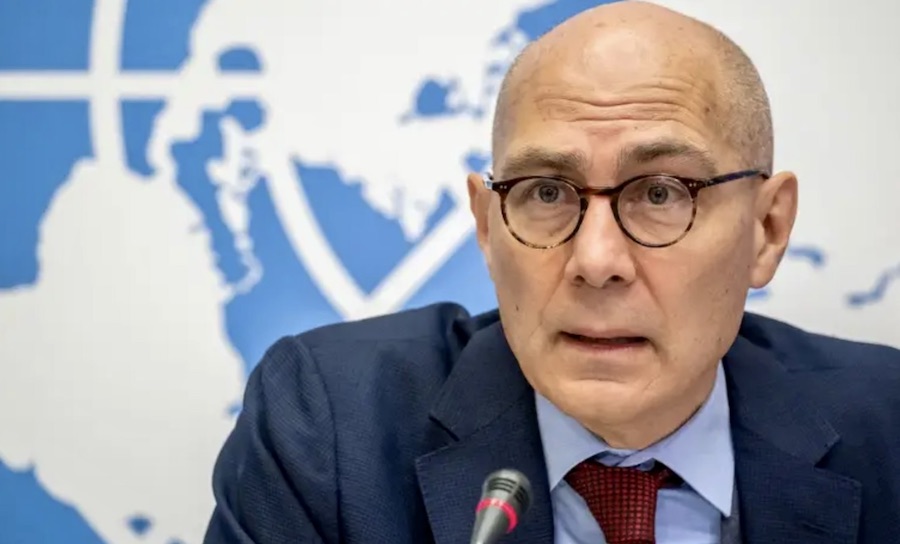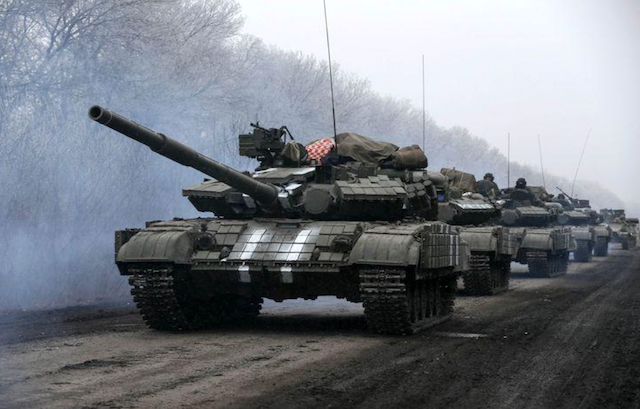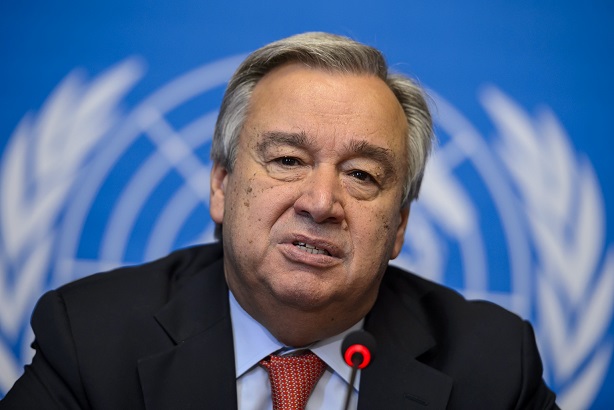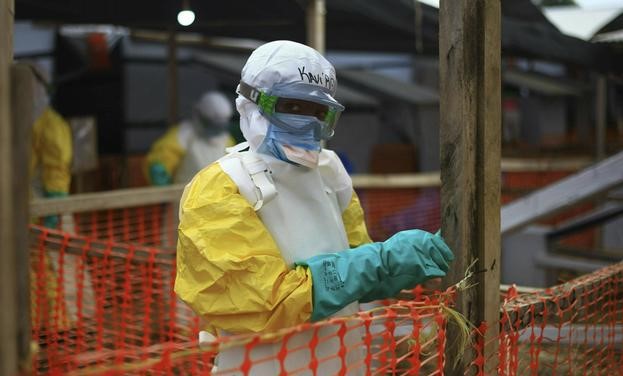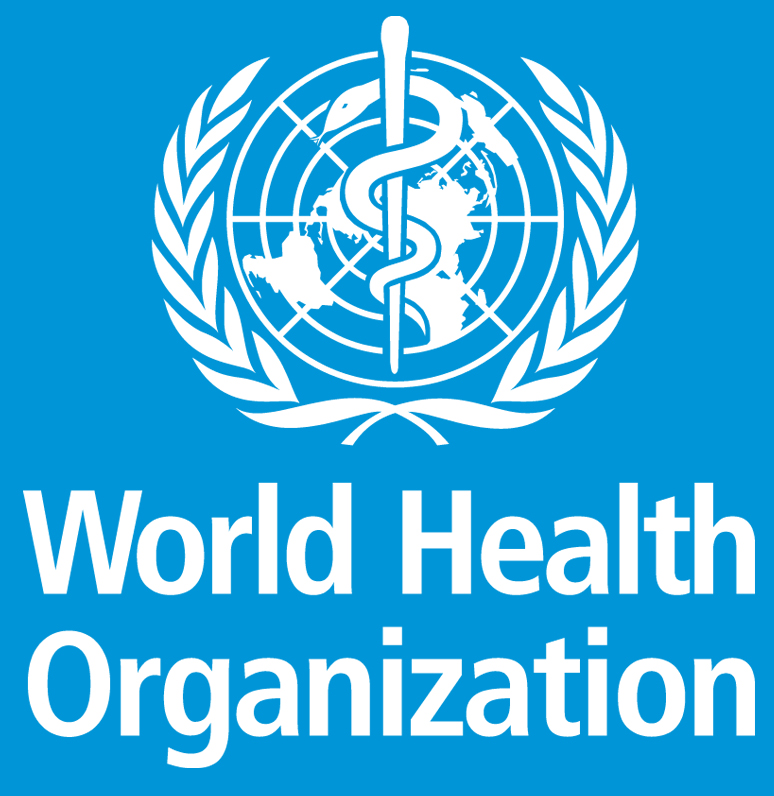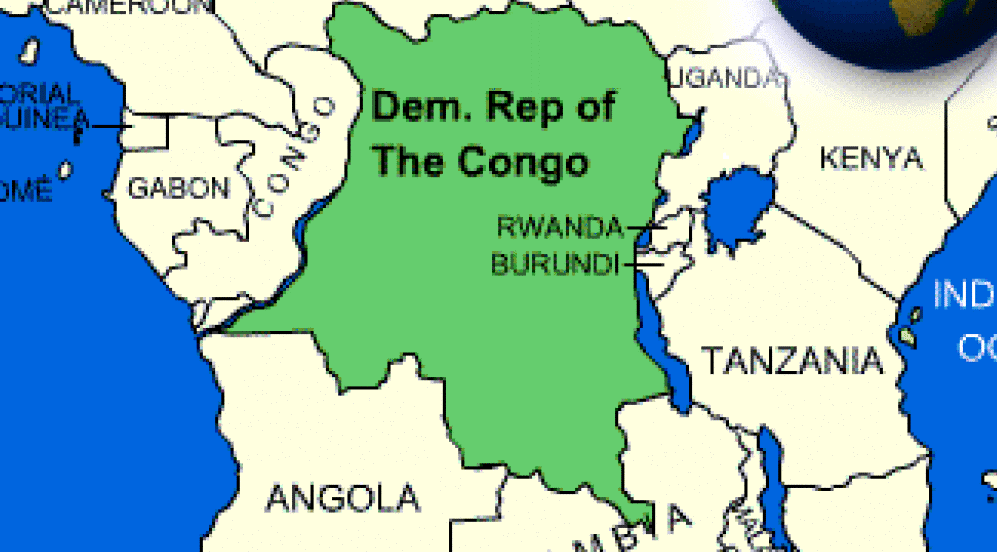Summary
Dennis Onakinor agonizes over the destructiveness of war, wondering why man has no qualms laying waste entire towns and cities that had existed for centuries and millennia in course of avoidable wars. He draws copiously from history to support his argument that pacifism is not synonymous with cowardice, and that preventive diplomacy is the only antidote to war.
Full Article
It is a tragic irony that humans, who are endowed with unrivalled natural intelligence, are the only earthly creatures possessing the unenviable ability to deliberately destroy, in a matter of seconds, the developmental structures they had painstakingly built over the ages, using their vaunted weapons of war. Unlike other creatures that engage primarily in hostile activities for purposes of survival, humans have developed a penchant for wars that serve no useful purpose other than the invitation of death, destruction, and misery upon fellow humans.
With quantum leaps in the design and production of lethal weapons like battle tanks, drones, missiles, fighters and bombers, man’s propensity for war has gained further impetus since the 2nd World War. In the aftermath of the Korean and Vietnam wars that saw estimated 5 and 7 million deaths respectively, the bloodletting continued unabated. If it wasn’t the Soviet Union invading Afghanistan to prop up a tottering communist regime, then it was the US invading Panama to oust a recalcitrant drug trafficking junta leader. And, if Saddam Hussein’s Iraq was not confronting Ayatollah Khomeini’s Iran, then it was nuclear-armed India and Pakistan threatening to vaporize each other in a hail of nuclear weapons.
On the African continent, the fratricidal bloodletting was heralded by the Democratic Republic of the Congo (DRC), which erupted in orgies of violence barely two weeks after obtaining Independence from a rapacious colonial master, Belgium, in June 1960. More than 200,000 souls perished in the imbroglio, before General Mobutu Sese Seko seized power in 1965 to impose graveyard peace in course of a 32-year tyrannical rule that finally crumbled in 1997. With the notable exceptions of Tanzania, Senegal, Morocco, and Botswana, nearly every African state has tasted the bitter pills of civil war or a violent upheaval, with the attendant loss of thousands and millions of lives.
The role of technologically advanced weapons in the proliferation of wars across the globe cannot be downplayed. The ease with which the US toppled the Osama bin Laden-sheltering Afghan Taliban regime in 2001, and its subsequent ouster of Saddam Hussein in the 2003 invasion of Iraq, are pointers to that often-discounted role. But, while global military powers like the US, Russia, Britain, France, and China continue to gloat over the destructive capabilities of their weapons of war, the following questions and related ones cannot escape asking:
Is it sadism or mindlessness, or a combination of both traits, which goads man to engage in wanton destruction of life and property, in the name of war? What level of barbarity propels man to lay waste entire villages, towns, and cities that had existed for centuries or millennia, in cause of war? What cruelty occasions man’s deliberate attacks on innocent children, women, the elderly and infirm during war? Why is it that even in the face of mounting casualties, man hardly sees the urgent need for an end to a raging war? Is it arrogance or ignorance, or a combination of both, that drives man’s madness in course of war?
Several theoretical constructs abound in relation to the phenomenon of war, and they range from those that offer psychological and anthropological explanations to those that attribute war to the dynamics of state power, nationalism, imperialism, and the nature of the international system. Interestingly, the psychological and anthropological constructs perceive war as a phenomenon rooted in human nature – that human beings are innately aggressive due to genetic composition and psychological makeup. On this premise, some have argued that man is basically selfish, and that war is an extension of that selfishness, which had occasioned two world wars that recorded an estimated combined death toll of more than 100 million.
Perhaps, man’s selfish nature accounts for his reluctance to find urgent and lasting solutions to raging wars, instead of proffering ad hoc solutions such as temporary ceasefires, safe corridors, prisoner exchanges, provision of relief materials, etc. It may also account for his attempt to humanize war through the “Geneva Conventions of 1949” and the related “Protocols of 1977 and 2005,” rather than make concerted efforts towards the prevention and total eradication of war. There is no gainsaying the fact that irrespective of the Geneva Conventions and Protocols, war remains barbaric, brutal, and bloody.
Presently, no war theatre epitomizes the barbarity, brutality, and bloodiness of war than Ukraine, where Russian forces are deliberately destroying Ukrainian civilian infrastructure, and laying waste entire towns and cities through indiscriminate bombardment. From all indications, President Putin’s forces are on a punitive expedition aimed at denying Ukraine the ability to function as a 21st Century state, going forward. And, with the Russian dictator threatening to resort to nuclear weapons in the event of NATO’s direct military intervention in the war, the scales are increasingly tilting towards an apocalyptic nuclear conflagration.
While the world’s attention is focused on Ukraine, the lingering Yemeni Civil War, which broke out in 2014, has receded to the background. Widely viewed as an Islamic sectarian proxy war between Shia Iran and Sunni Saudi Arabia, the conflict has been further compounded by the intervention of terrorist groups, such as Al-Qaeda in the Arabian Peninsula (AQAP) and the Islamic State (IS). So far, casualties are estimated at more than 500,000 – much of it due to starvation. More are sure to perish even as aid agencies are racing against time to avert a humanitarian catastrophe.
Similarly, in Ethiopia, Africa’s oldest Independent and second most-populous state, aid agencies are struggling to channel relief materials to starving victims of the ongoing civil war that erupted in November 2020 following a power tussle between Prime Minister Ahmed Abiy of the ethnic Oromo-based Prosperity Party (PP) and the opposition Tigray People’s Liberation Front (TPLF). With Tigray Region turned into a war theatre of horrendous war crimes, the African Union deserves commendation for brokering a ceasefire, which took effect on November 2, 2022. But, like most violent conflicts across Africa, the Ethiopian civil war, which has so far claimed about a million lives, is the outcome of a power-bid by centrifugal forces backed by rapacious external agents.
Meanwhile, the DRC is at it again, doing what it knows best: lurching from one violent crisis to another as domestic buccaneers team up with external forces to plunder the country’s vast deposits of diamond, copper, and cobalt resources. With the Rwanda-backed “March 23 Movement” rebels threatening to seize the strategic North Kivu provincial capital city of Goma, the African Union (AU) and the rest of the international community would do well to prevail on Rwanda’s President Paul Kagame and his Congolese counterpart, Felix Tshisekedi, to embrace preventive diplomacy and save the long-suffering people of the Congo yet another round of bloodshed and misery.
Empirical evidence have proven that wars often occur due to intransigence on the part of one or more parties to a conflict seeking particularistic advantage in utter disregard of the interest of others. But even so, some people tend to agree with the war conception of the 19th Century Prussian (German) army General, Carl von Clausewitz, that “War is a continuation of politics by other means.” Suffice to say that that conception is now outmoded, taking into cognizance the destructive nature of present-day wars in comparison to 19th century wars fought by calvary soldiers armed with Dane guns, spears, machetes, and knives.
Historically, some prominent individuals have promoted militarism over diplomacy. Sun Tzu, the ancient Chinese military strategist reputed for his military treatise, “The Art of War,” advocated military discipline and action over civic culture and diplomacy. In the same vein, Nicolo Machiavelli, the 15th Century Italian statesman famed for his treatise on governance, “The Prince,” posited that militarism should be uppermost in the mind of a ruler, as it makes the difference between the ruler’s success or failure. Adolf Hitler glorified militarism, and his dreaded war machine almost overran Europe during the 2nd World War, before the Soviet Union and Britain rallied to turn the tables against Germany with the help of the US.
Likewise, there have been prominent pacifists and advocates of peace across the ages. The 14th Century English Poet, Geoffrey Chaucer, decried warmongering in his famous “Canterbury Tales.” Through sheer pacifist diplomacy, American President John F. Kennedy successfully averted a nuclear war between his country and the Soviet Union during the 1963 Cuban Missile Crisis. General William Tecumseh Sherman, the American Civil War hero reputed for originating the popular dictum, “War is hell,” effectively laid to rest the erroneous notion that pacifism is synonymous with cowardice. In a personal letter written at the end of the American Civil War in May 1865, he said:
“I confess, without shame, I am sick and tired of fighting … Its glory is all moonshine; even success the most brilliant is over dead and mangled bodies, with the anguish and lamentations of distant families … It is only those who have never heard a shot, never heard the shriek and groans of the wounded and lacerated that cry aloud for more blood, more vengeance, more desolation.”
General Sherman went further to show that militarism is fueled by ignorance and arrogance, in his 1879 address to graduating students of the Michigan Military Academy, thus: “It’s entirely natural that there should beat in the breast of every one of you a hope and desire that someday you can use the skill you have acquired here. Suppress it! You don’t know the horrible aspects of war. I’ve been through two wars and I know. I’ve seen cities and homes in ashes. I’ve seen thousands of men lying on the ground, their dead faces looking up at the skies. I tell you, war is hell!”
In the first of a series of articles on the Russo-Ukraine crisis published in THE NEWS GURU, Yours Sincerely argued that “war is not inevitable if preventive diplomacy is on the cards.” In apparent realization that a military solution is unattainable by either Russia or Ukraine, prominent individuals across the globe are now advocating a diplomatic solution to the Ukrainian war, thus re-echoing my pre-war argument, that after all the death and destruction that a war entails, the ultimate solution would still rest on a negotiated settlement; so, why a costly war in the first instance?
History bears witness to the fact that peaceful diplomacy is the only antidote to war. In this wise, reputable statesmen such as heads of the UN, the International Committee of the Red Cross (ICRC), the Papacy, the Federation of International Football Associations (FIFA), etc., should all join hands to help bring to an end the ongoing carnage in Ukraine, as well as other trouble-spots like Yemen, Ethiopia, and the DRC. They should make the belligerents and their backers realize that human life is sacred and must not be sacrificed on the altar of insatiable ego and selfishness.
Dennis Onakinor is a global affairs analyst and a self-styled pacifist, who has written extensively on the Russo-Ukraine Crisis. He can be reached via e-mail at dennisonakinor@yahoo.com

